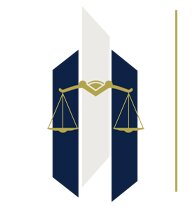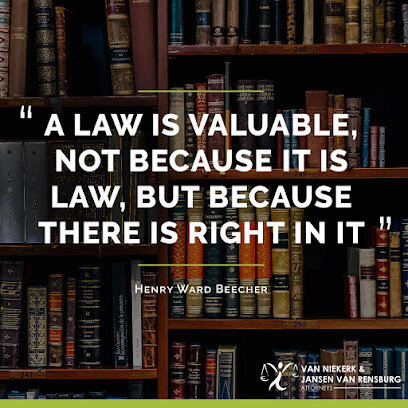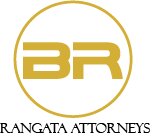Best Assault & Battery Lawyers in South Africa
Share your needs with us, get contacted by law firms.
Free. Takes 2 min.
Or refine your search by selecting a city:
List of the best lawyers in South Africa
About Assault & Battery Law in South Africa
In South Africa, assault and battery are considered serious criminal offenses. Assault refers to any act or threat of violence that causes another person to fear immediate harm, while battery involves actual physical contact that causes harm or offense. Both are treated under the criminal law system, and penalties can range from fines to imprisonment, depending on the severity of the incident and any aggravating factors. Understanding these laws is crucial for both victims seeking justice and individuals accused of these crimes as it greatly affects the legal outcomes.
Why You May Need a Lawyer
Legal representation is vital for anyone involved in assault and battery cases, whether as a victim or an accused person. A lawyer can help navigate the complexities of criminal law, ensure that your rights are protected, and provide guidance through court proceedings. Common situations requiring legal help include defending against false accusations, seeking justice and compensation as a victim, negotiating plea deals, and understanding the impact of potential penalties or defenses like self-defense.
Local Laws Overview
The South African legal system governs assault and battery under both common law and statutory provisions. Key aspects include:
- Definition and Severity: Legal definitions of what constitutes assault and battery, including distinctions between simple and aggravated forms.
- Penalties: Ranging from fines and community service to significant prison time, particularly for aggravated assault or in cases involving weapons.
- Defenses: Legal defenses such as self-defense, consent, and lack of intent can be critical in these cases.
- Reporting and Prosecution: Procedures for reporting an offense and how prosecutions are typically handled by police and the judiciary.
- Victim Support Services: Available for those affected, ensuring they receive the necessary support and protection.
Frequently Asked Questions
What is the difference between assault and battery?
Assault is the act or threat of causing physical harm, inducing fear of such harm. Battery involves actual physical contact causing harm or offense.
How are assault cases prosecuted in South Africa?
Assault cases are prosecuted by the state, following investigations by the police. The severity and circumstances of the assault impact the nature of the prosecution and penalties.
Can I withdraw an assault charge in South Africa?
Withdrawal of charges is a complex process usually requiring the approval of the prosecution. However, it's not solely the decision of the complainant.
What should I do if I'm accused of assault?
Seek immediate legal advice to understand the charges and prepare your defense. Avoid making any statements to the police without legal counsel.
Are there any defenses available in assault cases?
Yes, possible defenses include self-defense, consent, and lack of intent. Consult a lawyer to determine which is applicable to your case.
How can I prove self-defense in an assault case?
Self-defense must show that you faced an immediate threat and used reasonable force to protect yourself. Gathering evidence and witness testimony can support your claim.
What are the penalties for assault in South Africa?
Penalties vary widely, from fines and community service to imprisonment, depending on whether the charge is considered simple or aggravated assault.
Can a minor be charged with assault?
Yes, minors may be charged with assault, but the juvenile justice system handles such cases differently from adults, focusing more on rehabilitation.
What steps should a victim of assault take?
Report the incident to the police, seek medical attention if needed, and contact victim support services. It’s also advisable to document any evidence of the assault.
Are there alternative resolutions to going to court for assault cases?
Yes, alternative dispute resolution methods like mediation may be available, depending on the case's nature and consent from all parties involved.
Additional Resources
Consider accessing the following resources for more information and assistance:
- South African Police Service (SAPS): For reporting assaults and understanding the legal proceedings.
- Legal Aid South Africa: Provides legal assistance and representation for those who cannot afford private legal counsel.
- Victim Support Services: Organizations that offer support and counseling to victims of assault.
- Department of Justice and Constitutional Development: For guidance on legal rights and accessing justice resources.
Next Steps
If you need legal assistance in an assault and battery case, consider the following steps:
- Consultation: Schedule an appointment with a legal professional experienced in criminal law.
- Gather Evidence: Collect any relevant documentation, such as police reports, medical records, and witness statements.
- Understand Your Rights: Clearly understand your legal rights and obligations in your specific situation.
- Seek Support: Contact victim support or community services if you are a victim, for emotional and practical assistance.
Lawzana helps you find the best lawyers and law firms in South Africa through a curated and pre-screened list of qualified legal professionals. Our platform offers rankings and detailed profiles of attorneys and law firms, allowing you to compare based on practice areas, including Assault & Battery, experience, and client feedback.
Each profile includes a description of the firm's areas of practice, client reviews, team members and partners, year of establishment, spoken languages, office locations, contact information, social media presence, and any published articles or resources. Most firms on our platform speak English and are experienced in both local and international legal matters.
Get a quote from top-rated law firms in South Africa — quickly, securely, and without unnecessary hassle.
Disclaimer:
The information provided on this page is for general informational purposes only and does not constitute legal advice. While we strive to ensure the accuracy and relevance of the content, legal information may change over time, and interpretations of the law can vary. You should always consult with a qualified legal professional for advice specific to your situation.
We disclaim all liability for actions taken or not taken based on the content of this page. If you believe any information is incorrect or outdated, please contact us, and we will review and update it where appropriate.
Browse assault & battery law firms by city in South Africa
Refine your search by selecting a city.















